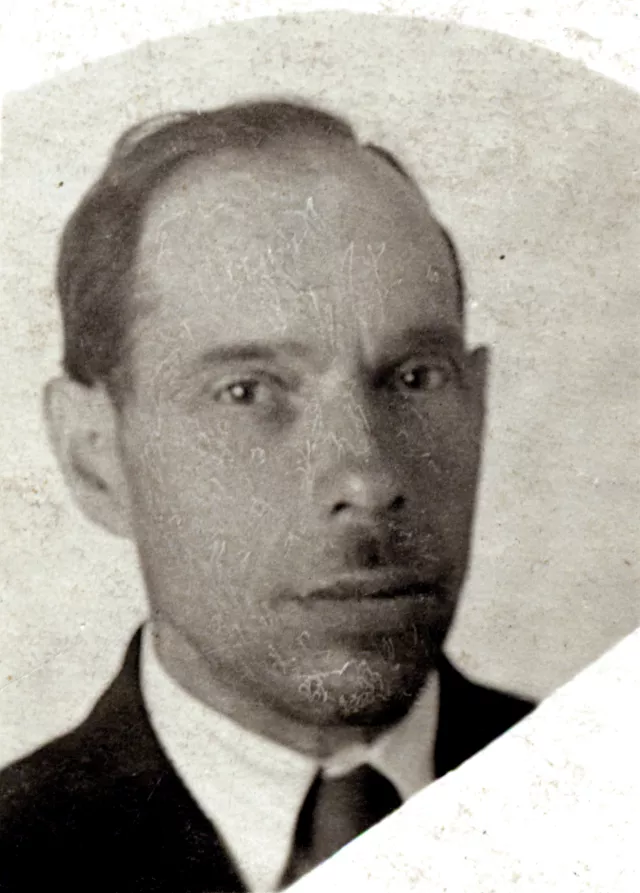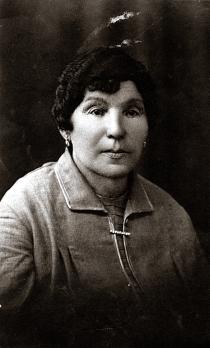Filip Perelmut
This is my, uncle Filip Perelmut. I do not remember when and where exactly the picture was taken, but I think it must have been in the 1930s. I have got this photo thanks to my two aunts: Mania and Ania, from Moscow. I am in possesion of many pictures that were saved by my family in Moscow. And it happened because my parents would send many pictures and letters to them before the war broke out. And all those pictures were saved. The ones we had in our home in Bialystok got lost, naturally. After the war I found out that my two aunts kept our family archives. I was really happy to get those precious things back.
Father's family came from Brest. They were more of a working class family. They all worked in the textile industry. In 1920, when there was a revolutionary committee in Bialystok the three of them, two of Father's sisters and the youngest brother left for Russia with the Red Army in 1920. This youngest brother's name was Filip. He died in the battle of Kursk in 1941. His son Aron lived in Minsk, in Belarus.
My aunts, father's sisters were Genowefa, Fela, Ania and Mania. Mania married Naum Pinski. Ania's husband was Natan Lapidus. Natan also fought the Germans, as a senior lieutenant. He fought like the entire family did. None of them are alive. I met them in 1941, when Belarus was under Soviet occupation. That was when Father went to see his family, whom he hadn't seen for so many years. He was the oldest. And I also went there, to the Soviet Union, right before the war. And that was when I met one aunt, the second one, both are dead now, and my uncle Filip, who was in love with the Soviet Union. They all worked.
There were no losses in the family, because of Stalin's regime. And he explained to me that he had a job, that he appreciated how they cared for workers, how they cared for people. When I got there, the first thing he did was show me Lenin, there in that mausoleum, then we went to see the Soviet officer's house, which was a very beautiful building. And he showed me Moscow.





















